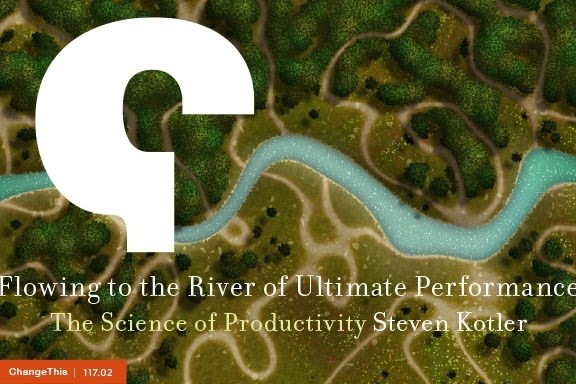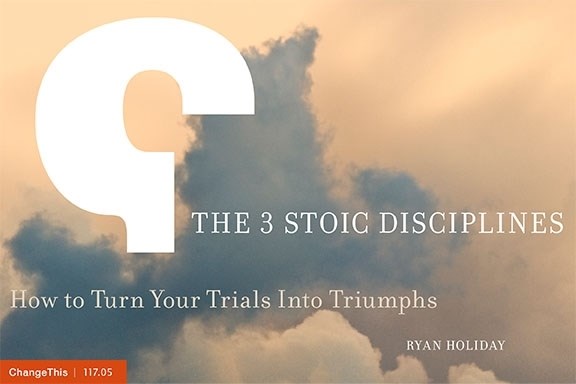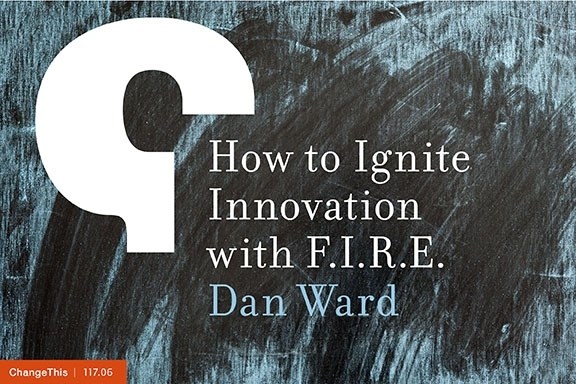ChangeThis RSS
"Researchers define flow as an 'optimal state of consciousness,' a peak state where we feel our best and perform our best. ... If you've ever lost an afternoon to a great conversation or become so involved in a work project that all else was forgotten, then you've tasted this experience. In flow, we are so focused on the task at hand that everything else falls away. Action and awareness merge. Time flies. Self vanishes. All aspects of performance—mental and physical—go through the roof.
We call this experience flow because that is the sensation conferred. In the state, every action, each decision, leads effortlessly, fluidly, seamlessly to the next. It's high-speed problem solving; it's being swept away by the river of ultimate performance.
This last bit is no exaggeration. Over 100 years of research shows that flow sits at the heart of almost every athletic championship; underpins major scientific breakthroughs; and accounts for significant progress in the arts. ... In recent years, flow has also become exceptionally critical to business."
Continue reading
"The unspoken beliefs that wield the most influence over business behavior are the metaphors that people use to envision the following major aspects of the work experience:
What is business all about?
What is a corporation all about?
What is management all about?
What role do employees play?
What really motivates people?
What is the nature of change?
What's the role of technology?
What is the essential nature of work?
The answers to these questions define a company's corporate culture. So, then, what type of culture allows companies to pursue strategies that work today? What makes a corporate culture smart, given today's business environment?
A good way to answer these questions is to compare what the executives inside successful companies believed in the past as opposed to what executives inside successful (i.e. smart) companies believe today. Here's what 'smart' cultures believe ... "
Continue reading
"15 years ago, I quit law school to pursue one overarching question: 'Why do capable people fail to breakthrough to the next level?' The answer to the question, to my great surprise, is success.
I first noticed the phenomenon while working with executive teams in some of Silicon Valley's most innovative companies. When they were focused on the right few things it led to success. But the success bred options and opportunities which undermined the very focus that led to success in the first place. In other words, I found that success can be a catalyst for failure. If we are not careful, it leads to what Jim Collins described as "the undisciplined pursuit of more." It is true for companies; it is true for people."
Continue reading
"On a dark night at the front in the year 170 Marcus Aurelius, the most powerful man in the world, wrote the following prescription to himself: 'The impediment to action advances action. What stands in the way becomes the way.'
Great individuals, like great companies, find a way to transform weakness into strength. It's a rather amazing and even touching feat. They took what should have held them back—what in fact might be holding you back right this very second—and used it to move forward. Like these great individuals we can also flip our obstacles and turn adversity into advantage."
Continue reading
"Solving a difficult technical challenge requires imagination, focus, endurance, and a tolerance for failure, to name but a few key ingredients. However, the real secret behind delivering world-class innovation actually depends on what we lack rather than what we have. [...]
In fact, the pattern of rapid, thrifty innovation shows up across a large range of technical contexts and genres. Whether we are talking about submarines or software, medical or military technology, the most impactful and successful innovations tend to be produced by small teams with short schedules, tight budgets, and strong commitments to simplicity."
Continue reading











